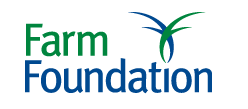 Farm Foundation, NFP, along with USDA’s Economic Research Service and Bank of America Merrill Lynch, has organized a workshop that intends to explore the implications of the evolving trends regarding non-farmer investor interest in agricultural resources and the use of more diverse business organization tools by farm landowners. The workshop will be held June 6-7, 2016, at the Brown Hotel, Louisville, KY.
Farm Foundation, NFP, along with USDA’s Economic Research Service and Bank of America Merrill Lynch, has organized a workshop that intends to explore the implications of the evolving trends regarding non-farmer investor interest in agricultural resources and the use of more diverse business organization tools by farm landowners. The workshop will be held June 6-7, 2016, at the Brown Hotel, Louisville, KY.
“Several years of strong commodity prices, combined with high market demand, fueled investor interest in agricultural resources worldwide,” says Farm Foundation, NFP President Neil Conklin. “Commodity prices have cooled significantly, but interest in farmland investments remains strong.”
The workshop was developed as more investors outside the agricultural sector have begun to buy farmland, including financial services firms and pension and mutual fund companies. Agriculture-only REITS are now part of the farmland market, and other financial developments are also at play in the agricultural finance sector. Farmers seeking to keep their land, invest in capital assets, adapt to changing supply chains, or expand their current operations are turning to a wide array of organizational tools, such as C- and S-corporations.
“It is clear that trends in farmland ownership and tenure patterns are changing,” Conklin says. “This workshop will explore the current interest in farmland, the players driving it, and the implications for farmland ownership and tenure.”
The day-and-a-half long workshop will feature talks by farmer landowners, academic researchers and lenders, including representatives of commercial banks, Farm Credit, insurance companies and the investment community. The program will also work to examine the relationship of ownership and financing to farm policies, including programs targeted to credit, conservation, commodities and crop insurance.
“This workshop is targeted to farmers, landowners, investors and members of the finance, agribusiness and public policy communities. All are key players whose actions are shaping the trends in farmland ownership and agricultural finance which, in turn, has potential implications for the social and political environments in which they operate,” Conklin says.
The workshop is free and open to all interested parties. Registration is requested, and can be completed online here
